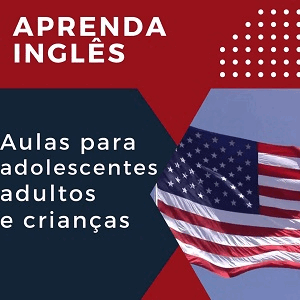
There are a few kinds of orders that can help them stay afloat during trading. Among those important orders, stop-loss and stop-limit stand out as the most popular ones. Benefit from cutting-edge platforms, apps and expert service all from a leading global trading provider with a 45-year heritage. Become a better trader with IG Academy, our interactive online courses and expert-led webinars. If you lose all of your trading capital, there is no way you can make back the lost amount, you’re out of the trading game.

As noted, the biggest problem with stop-loss is that it converts to a market order upon execution. This means that your portfolio will execute the trade at a potentially unpredictable price. Our sale of Stock A above will trigger at $8 per share, but we have no control over the price that stock will actually sell for.
Potential Disadvantages
Before placing your trade, become familiar with the various ways you can control your order; that way, you will be much more likely to receive the outcome you are seeking. The next chart shows a stock that “gapped down” from $29 to $25.20 between its previous close and its next opening. Note, even if the stock reached the specified limit price, your order may not be filled, because there may be orders ahead of yours. In that case, there may not be enough (or additional) sellers willing to sell at that limit price, so your order wouldn’t be filled. (Limit orders are generally executed on a first come, first served basis.) That said, it’s also possible your order could fill at an even better price. For example, a buy order could execute below your limit price, and a sell order could execute for more than your limit price.
Stop-Loss Orders: One Way To Limit Losses and Reduce Risk – Investopedia
Stop-Loss Orders: One Way To Limit Losses and Reduce Risk.
Posted: Sun, 26 Mar 2017 08:17:15 GMT [source]
Using a stop loss decreases the risk of blowing your account and work to protect your trading capital. The services provided to clients will vary based upon the service https://trading-market.org/short-selling-vs-put-options/ selected, including management, fees, eligibility, and access to an advisor. Find VAI’s Form CRS and each program’s advisory brochure here for an overview.
Stop-loss orders vs. stop-limit orders vs. market orders
In the above example, the investor could have purchased XYZ stock cheaper than $82/share originally, but didn’t want to enter the trade until the stock price broke through the upper level of the range. Long-term investors shouldn’t be overly concerned with market fluctuations because they’re in the market for the long haul and can wait for it to recover from downturns. However, they can and should evaluate market drops to determine if some action is called for.
- The idea of using a stop price is to protect your position from sharp declines.
- If you have a large position in a stock, executing it may be difficult for illiquid security.
- For buy orders, this means buy at the limit price or lower, and for sell limit orders, it means sell at the limit price or higher.
- All information presented is without any representation, guaranty, or warranty regarding the accuracy, relevance, or completeness of the information.
A value investor’s criteria will be different from the criteria of a growth investor, which will be different from the criteria of an active trader. No matter what the strategy is, the strategy will only work if you stick to it. So, if you are a hardcore buy-and-hold investor, your stop-loss orders are next to useless. Stop-loss orders are mostly used when you’re expecting volatility to occur in your stock just before its time to close trades. For instance, if you’ve created a sell stop-loss order for $10 on ABC shares, it will automatically convert into an actual sale as soon as the share price dips to $10 or below that.
How Stop-Loss Orders Can Help Protect Your Investments
If the stock trades at the $27.20 stop price or higher, your order activates and turns into a limit order that won’t be filled for more than your $29.50 limit price. You want to buy a stock that’s trading at $25.25 once it starts to show an upward trend. You don’t want to overpay, so you put in a stop-limit order to buy with a stop price of $27.20 and a limit of $29.50.
These orders can guarantee a price limit, but the trade may not be executed. This can harm investors during a fast market if the stop order triggers, but the limit order does not get filled before the market price blasts through the limit price. Both types of orders can be entered as either day or good-until-canceled (GTC) orders. A stop-loss order is an order placed with a broker to buy or sell a specific stock once the stock reaches a certain price. A stop-loss is designed to limit an investor’s loss on a security position.
Sign up for Investor Updates
We recommend that you seek independent advice and ensure you fully understand the risks involved before trading. A type of investment that gives you the right to either buy or sell a specified security for a specific price on or before the https://currency-trading.org/strategies/tifu-by-nearly-scalping-myself/ option’s expiration date. If after a day of trading Stock A settles at $5 per share over a day of trading and never recovers, your order will never go through. In trying to mitigate your losses you will have actually magnified them.
Stop Loss Order: Advantages & Why You Should Use It – Investopedia
Stop Loss Order: Advantages & Why You Should Use It.
Posted: Sat, 25 Mar 2017 19:30:12 GMT [source]
Once that price is met, the order changes to a market order and trades right away. Stop-loss orders can also be used to lock in a certain amount of profit in a trade. This information is educational, and is not an offer to sell or a solicitation of an offer to buy https://day-trading.info/10-stocks-to-buy-tomorrow-intraday-nse-stocks/ any security. This information is not a recommendation to buy, hold, or sell an investment or financial product, or take any action. This information is neither individualized nor a research report, and must not serve as the basis for any investment decision.
If the price of the stock falls too fast and the portfolio can’t sell it for at least the limit price, it will not sell. Under this instruction, your portfolio (either through its manager or an automated system) will sell the selected stock as soon as it dips below a certain price. With a stop-loss order, your stock will be sold at the best available price when it is triggered. This means that if the price dips dramatically when your loss amount is reached you may end up with more of a loss than your intended limit. The limit price helps lower risk by stating that orders must be traded below or up to the limit price.
For instance, if a stock is purchased at ₹100 and the loss is to be limited at ₹95, an order can be placed to sell the stock as soon as its price reaches ₹95. Such an order is known as a ‘Stop Loss’ as it aims to prevent a loss exceeding the predetermined risk. If the price you are trying to set on your order to open is better than the current market, you will need to place a take-profit order. This will only execute if the market price is at this limit or better.
How to Set Stop Loss Levels
They are different from stop-limit orders, which are orders to buy or sell at a specific price once the security’s price reaches a certain stop price. Stop-limit orders may not get executed whereas a stop-loss order will always be executed (assuming there are buyers and sellers for the security). The main objective of a stop loss is to limit losses but they do not guarantee whether a trade will be executed at the desired price. In volatile market conditions, the stop-loss order is executed at a much worse price which results in a higher loss. Being emotionally biassed is one of the major reasons for a bad decision-making process.














